Let all bitterness, and wrath, and anger, and clamor, and evil speaking, be put away from you, with all malice: And be ye kind one to another, tenderhearted, forgiving one another, even as God for Christ’s sake hath forgiven you.
Ephesians 4:31–32, kjv
The last place Arabella Barr expected to encounter Major Gareth Reynard was at a Falmouth hiring fair. Three years ago, she would have rejoiced to see his tall, lithe figure striding toward her through a throng, but not there. Not while carrying the tools of her trade along with dozens of other hopeful men and women in need of work, parading past what were mostly the butlers and housekeepers of ladies and gentlemen in need of servants. Yet there she stood, a wooden spoon and a copper pot gleaming in her hand, a mere shade or two brighter than her own ruddy locks. And there he strolled, a glass of lemonade in his hand, and a stout, middle-aged woman in black gown and frilled white cap at his side.
Arabella saw him too late to escape, even if eluding his notice were an option. She could not get hired if she ducked behind the copper pan, or the woman beside her, who was twice her width and half a head taller. And she needed someone to hire her. She had spent nearly every farthing she possessed to remove herself to this remote corner of England in an effort to avoid persons who once called her friend or, at the least, social equal. No employment by the end of the fair meant no roof over her head that night and precious little to eat. So why, oh, why, was he in Cornwall instead of with his regiment in Belgium with half the ton? Why oh why had she not fled somewhere like the Hebrides to find work away from the peers who now shunned her as though she would contaminate them with a mere glimpse of her?
The answer to her decision was simple—a Scots household that could afford a cook would not hire an English one. The reason for Major Reynard’s presence at the Falmouth hiring fair baffled Arabella into immobility of body and thought, as he drew close enough to speak to her.
“Arabella—Miss Barr.” He was not inflicted with immobility. His blue eyes sparkled as though sunshine blessed the warm summer day. His lips, the lower one enticing with its cleft in the middle, curved into a smile. “Here you are at last.”
Apparently paralyzed from the ability to emit speech, Arabella’s mouth remained closed. Not a word formed in her head to move to her tongue, even if those words could force their way past her lips.
“I never thought I’d find you.” Major Reynard was speaking again, though her ears seemed to have lost their ability to understand English, for his syllables made not sense to her. “But now that I have—“
“Sir,” The housekeeper-looking woman beside him interrupted, “begging your pardon, and I don’t recommend you hire this one. She’s too young and too pretty.”
“I’m not interested in hiring her.” Major Reynard reached a hand toward Arabella. “Please, my dear—“
Like a shock from one of those electrifying machines, the words “my dear” shot through Arabella and spurred her into action. She flung up her pot like a shield and fixed him with a glare. “If you have no intention of hiring me, then step aside so someone else can.”
“Arabella, my dear—“
“I am not your dear, or have you forgotten that you jilted me three years ago?” She spun on her broken-down heel and stalked through the crowd to another corner of the grounds.
From the corner of her eye, she watched him bend his head toward the housekeeper as though speaking earnestly, confidentially. Arabella could only guess at the words, as she could see neither Major Reynard’s nor the housekeeper’s faces, nor hear their voices above the tumult of cries of, “Will you pay for this,” from maids wielding dust mops, and “Hot pies. Get your hot pies here,” from piemen carrying their trays above their heads.
“She nearly ruined my career three years ago, Mrs. Housekeeper.” The major would be saying. Or if he was in a humor to be kind, “Or rather, her father did. I’ve been looking for her to—“
Why he had found her “at last” Arabella couldn’t imagine. He had left the country with his regiment the first week the banns for their nuptials had been called instead of staying in England for the wedding. And Arabella had fled London with little more than the clothes on her back and ring—
A-ha! The ring. He wanted the ring back. No doubt he had found another heiress to bestow the betrothal band upon and couldn’t afford to buy another such bauble on a major’s pay.
Arabella raised her left hand to examine the bare finger. She had sold the ring to hold body and soul together until she convinced someone to hire a cook barely into her twenties.
She lowered her hand to see another housekeeper was bearing down upon her like a hawk on a mouse. “References?” The word was a fox’s yip.
“Yes, ma’am.” Tucking the pot and spoon under one arm, Arabella drew two folded papers from her reticule. “I’ve been creating pastries since I was ten years of age and advanced to sauces and roasting meats when I was fifteen.”
Because she begged the cook in her father’s house to teach her on lonely days when she couldn’t spend her lonely hours riding..
“As you see—“
“Why did you leave your previous employer?” the housekeeper interrupted her.
“Their London chef decided he wanted a spell in their country house.”
And she had seen Major Reynard’s name on the guest list for an upcoming houseparty. The Featherstones had been kind to her. She didn’t wish to embarrass them with her true identity emerging while guests from the haut-ton filled their house.
“As you see from my references, my work was more than satisfactory. I, um—“ She forgot what she intended to say, for she spied the major striding toward her through the crowd without his housekeeper this time. I’m good.” She finished with a lameness that would convince no one to hire her.
But the housekeeper was reading her references with care.
“She might have written those herself.” Major Reynard’s rich timbre rolled over her ears like a drayman’s wagon now, though once upon a time, it had sent shivers of delight racing through her. “She has a fine hand.”
“I don’t. I mean, I didn’t. That is to say. . .” Arabella’s voice trailed off as the potential employer thrust the letters back.
“You look too young.” She trundled off to a stout woman with a dented tin pot.
“How could you?” Tears stung Arabella’s eyes. She blinked them back and thrust the handle of her wooden spoon into Major Reynard’s neatly tied cravat. “She was giving me serious consideration and now-now you’ve ruined it. But what should I expect from you other than to to ruin my life?”
“You don’t need to be working like a common servant now that I have finally located you.” He reached for her arm.
She jerked away. “You are giving all the potential employers a wrong impression of me.”
“Miss Barr, I am trying to talk to you.”
“And what you are doing is creating a scene.”
A circle of silent onlookers surrounded them.
“We can’t talk here, Ara—Miss Barr.” The major took her elbow. “I have a private parlor in the inn and my housekeeper will chaperone.”
She tucked pot, spoon, and the bag with her measly belongings behind her back. “The time for talking to me was three years ago. But, you couldn’t flee fast enough from so much as a fare-the-well.” Tears stung her eyes, clogged her throat, and she stepped backward before he noticed.
And stepped on someone’s foot.
“Yow, ye broke me toe.” The cry sounded more like the yowl of a cat defending its territory than a young woman.
The blow she dealt Arabella on the side of her head with the handle of a broom felt more like a truncheon. She gasped and staggered. Her pot flew in one direction, her spoon in another. The pot knocked the brushes from the hand of a chimney sweep, and a stray dog snatched up the spoon and darted through the crowd as though he had captured a meaty bone.
Major Reynard captured Arabella by her arms. “Are you all right? Shall I catch that woman and lay an information against her for assaulting her?”
“My spoon. My pot.” Arabella shrieked her dismay. “I need them. I—“ She yanked free and darted after the sweep with her pot. She couldn’t afford a new one. She wouldn’t have that one if she hadn’t slipped it out of the house ahead of the bailiffs come to collect all the Barrs’ worldly possessions.
But the sweep was small as his kind was wont to be, and the fair crowded. He vanished from her sight before she ran a dozen yards.
And she had just lost her reticule. One cord of her bag still dangled over her sleeve from where a cutpurse had taken advantage of the chaos and run off with the last of her worldly wealth—two shillings and a happens.
She stared at the frayed string and wished the maid had wielded the broom a little harder. If she had been knocked unconscious, she could wake up to discover this was all a nightmare. But she was already awake and this was not a nightmare. Stark reality told her she was now bereft of the tools of her trade, her references, and a paltry sum of money, but enough for a pie.
How she would adore a pie. Though the crust would likely be tough and greasy, not her own flaky pastry light enough to blow away with a puff of air, sustenance of any kind would help ease the gnawing emptiness inside her, an emptiness caused by a lack of nourishment for the past two days, and a hollow place in her chest once filled by her love for a dashing cavalry officer.
That cavalry officer reached her side and simply held out his elbow for her to take as though they promenaded through a garden party at a country house and not through a malodorous throng. He wore the buckskin breeches and top boots of the country gentleman rather than his uniform, and yet he was no less dashing. Chiseled features, broad shoulders, and narrow hips did that for a man when he was also confident to the point of arrogance, expecting all to move from his path and do his bidding despite his position of the third son of a modestly prosperous baronet.
Resigned to the notion that she should at least get a meal from his wish to speak to her, Arabella was no different than those around him. She took his elbow and allowed him to lead her through a throng that parted like a joint beneath a cleaver
Half way across the green, he stopped and held out his hand. “I will carry your bag.”
She gave it to him. That was easier than arguing. He took it with the tensed muscles of someone who expected a heavy burden. At the lightness of the bag, little more than a drawstring sack like an over-sized reticule, he took half a minute to gaze down at her, his dark blue eyes registering an expression she chose to believe was pity.
“I expected more,” he said.
“What more could I have after three years on the run?”
“But why—“ He shook his head and resumed walking, his stride long, his footfalls striking the ground hard enough for her to feel them through his arm.
“That damage your conscience?” she taunted. “If you have one.”
“Arabella, please don’t.” He didn’t say what he didn’t want from her—as if he hadn’t said that loudly and clearly three years earlier—for the reached the inn.
The tap and coffeerooms bulged with sweating, shouting humanity on either side of the entryway. The Major shouldered his way through the swarm and up a flight of steps to a room at the top of the steps. He knocked and the housekeeper opened the portal to show a plainly furnished room with a table and chairs, a sideboard and desk, an oasis in the desert.
“Mrs. Polglaze,” Reynard said, “did you order some dinner?”
“I did, sir, and there’s warm water in the next room if Miss Barr wishes to freshen herself up a mite.” She bestowed a kindly look upon Arabella. “Shall I show you the way?”
She showed Arabella to an adjoining room. Warm water and soap, though harsh, restored some of her dignity. A comb for her tumbled hair helped even more. The smell of meat pies and other savory dishes brought into the parlor by an inn servant nearly restored her to a shred of the confidence that had gotten her out of London and into a paying position before she starved to death.
Then she strolled into the parlor and faced Major Gareth Reynard in enough quiet and privacy for them to speak for the first time since he slipped out of her life. The fragrance of the meal gagged her. Her knees grew so weak she clutched the back of a chair to stop herself from dropping to her knees on the floorboards. Only her pride gave her the strength to look the major in the eyes.
“What do you want?” she demanded.
“Your forgiveness.” He gripped the back of his own chair. He had removed his gloves prior to eating, and his knuckles shone as white as hers. “And to tell you why I did what I did. To explain. . . Explain. . .”
Arabella made herself laugh. “You think you can explain away leaving me at the altar or as near as it doesn’t matter?”
“Not explain away, but—“
“Thank you, sirrah, and your actions gave me all the explanation I have needed for the past three years and continue to need. You promised me everlasting love, but vanished into the arms of the war the day after the constable hauled my father off to Newgate Prison.”
Part 2 of Love Everlasting can be read here.
So what do you think? Is any excuse good enough to explain the major jilting his fiancee practically at the altar? Regardless, how can Arabella forgive him? Could you forgive a man who left you at the altar in an hour of desperate need or any other time?
Originally posted 2014-07-07 05:30:00.
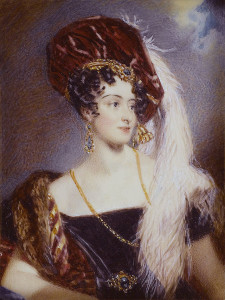
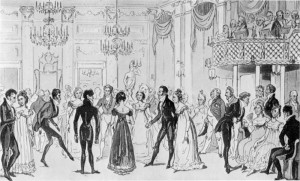
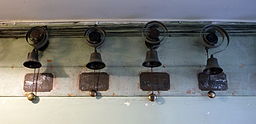





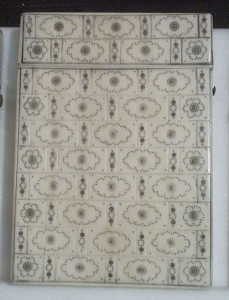



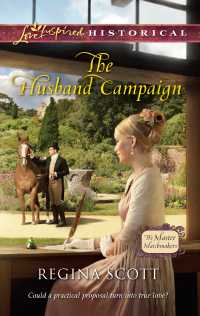 And then along came John, Lord Hascot, the hero of my April Regency-set romance from Love Inspired Historical, The Husband Campaign. John who raises hunters, those powerful horses that carried gentlemen into the hunting field and, occasionally, into battle. I was fairly certain I would never be able to think about horses the way John, Lord Hascot, does. Horses are John’s life. But they would need to become the life of any lady he wed. How could I possibly describe Lady Amelia’s response to John’s horses or her own?
And then along came John, Lord Hascot, the hero of my April Regency-set romance from Love Inspired Historical, The Husband Campaign. John who raises hunters, those powerful horses that carried gentlemen into the hunting field and, occasionally, into battle. I was fairly certain I would never be able to think about horses the way John, Lord Hascot, does. Horses are John’s life. But they would need to become the life of any lady he wed. How could I possibly describe Lady Amelia’s response to John’s horses or her own? After 27 sweet historical romances set in the Regency period, Regina Scott knows there is still much to learn. You can learn more about her at her website at www.reginascott.com, her blog she shares with author Marissa Doyle at www.nineteenteen.com, and her Facebook page at www.facebook.com/authorreginacott.
After 27 sweet historical romances set in the Regency period, Regina Scott knows there is still much to learn. You can learn more about her at her website at www.reginascott.com, her blog she shares with author Marissa Doyle at www.nineteenteen.com, and her Facebook page at www.facebook.com/authorreginacott.